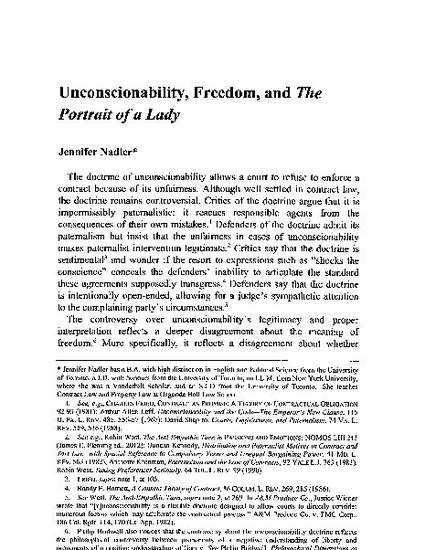
The doctrine of unconscionability allows a court to refuse to enforce a contract because of its unfairness. Although well settled in contract law, the doctrine remains controversial. Critics of the doctrine argue that it is impermissibly paternalistic: it rescues responsible agents from the consequences of their own mistakes.' Defenders of the doctrine admit its paternalism but insist that the unfairness in cases of unconscionability makes paternalist intervention legitimate. Critics say that the doctrine is sentimental and wonder if the resort to expressions such as "shocks the conscience" conceals the defenders' inability to articulate the standard these agreements supposedly transgress.' Defenders say that the doctrine is intentionally open-ended, allowing for a judge's sympathetic attention to the complaining party's circumstances.
Available at: http://works.bepress.com/jennifer-nadler/1/
